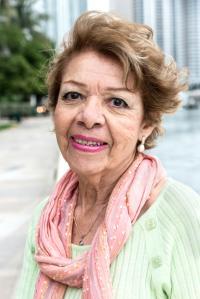Elder, Health and Disability: Protecting the rights of elders, preserving access to health care and disability benefits
GBLS Prevents Exploited Elder’s Eviction
The Elder, Health and Disability Unit represents elders, people with disabilities and families to ensure that they have the income, health care and services that they need to live independently in the community. Our work promotes affordable housing for seniors, access to quality health care, Social Security or SSI income. We work to keep people out of institutions and to improve the quality of life for those who live in institutions. We empower people to make decisions about their lives and support people with disabilities in their fight for accessibility.
Our unit includes sub-units for access to health care, Social Security or SSI income, children’s rights, Medicare, and elder law.
Direct Services
Our major priorities include:
Preservation of Housing for Elders by defending against evictions from public and subsidized housing, since it is housing of last resort. Loss of this housing almost always means homelessness, and physical and emotional decline for the elder.
Economic security for families, adults, and elders through the provision of Social Security/SSI benefits which can help lift elders, adults and children out of poverty. We work to ensure that these clients are provided with the fundamentals of due process, including adequate notices, fair hearings and timely receipt of benefits.
Strengthening access to health care for families, adults, and elders in order that their right to quality affordable health care becomes a reality. We work to ensure that people with disabilities, children and elders have access to the coverage and services they need to maintain health.
Advancing the rights of people with disabilities by representation of children with psychiatric disabilities on issues related to their rights under Rosie D. and representation of youth and adults who need services from state agencies for their mental health needs.
Defending the rights of immigrants who often do not understand what programs they may be eligible for, or have been erroneously turned down for assistance and are isolated due to language or misunderstanding.
Protecting the rights of the most vulnerable elders including those in nursing homes them in nursing home eviction cases and in cases where they are seeking to exit these institutional settings and to rejoin the community.
Read more about the GBLS Elder, Health and Disability Unit’s direct client services.
Elder, Health & Disability Community Partnerships
Community partnerships are a mainstay of our elder, health and disability work. They enable us to expand our advocacy efforts. Our current collaborative initiatives include ensuring access to health care, providing economic security and preserving housing for elders.
Read more about our community partnerships.
Elder, Health & Disability Impact Advocacy
The current priorities for our impact advocacy are home and community based services reform, ensuring the rights of isolated nursing home residents, improving access to hospital services and transportation services for people with disabilities and ensuring access to health care services.
Read more about the Elder, Health and Disability Unit's impact advocacy.

